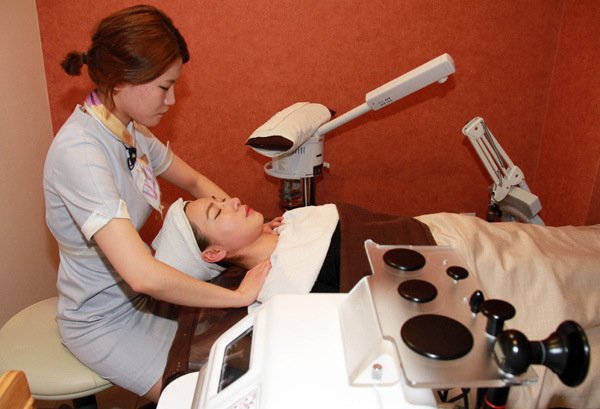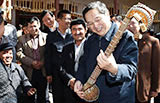Pact will attract cosmetic surgeons
By Zhu Zenqian, Zhao Ruixue and Zhang Xiaomin (China Daily) Updated: 2015-06-02 15:51
 |
|
Ready for the makeover. A plastic surgery clinic in Seoul, South Korea. [Photo/Xinhua] |
Under the agreement, doctors who are licensed in South Korea, including plastic surgeons, can work in China for six months to a year.
Some coastal cities in Northeast and East China that are near South Korea will be able to obtain advanced Korean medical techniques, drugs and equipment, and establish international health centers, experts said.
The cities include Yanbian in Jilin province, Dalian in Liaoning province, and Yantai and Qingdao in Shandong province.
Last year, construction began in Yantai on a Sino-South Korean "health park" that will offer cosmetic surgery, postnatal care and other services.
On Monday, officials in Yantai signed an agreement with a medical instrument organization in Seoul covering cosmetic and medical services.
In Weihai, another coastal city in Shandong, the Xinwa maternal and child care center, a Sino-South Korean health maintenance program, opened on Sunday. "We will mostly benefit from lower tariffs on postnatal nursing equipment. All of the equipment we use is made in South Korea," said Wang Jun, general manager at the center.
He Dongliang is a well-known nasal plastic surgeon in Dalian who set up his own hospital. He studied in South Korea for a year. There are numerous plastic surgery hospitals in South Korea, and the quality of their work is uneven, but it is generally better than in China, he said.
"Plastic surgeons in South Korea follow strict procedures and pay careful attention to detail. In China, some surgeries, such as making double-fold eyelids, can cost up to 1 million yuan ($161,300), which seems unreasonable.
"Many South Korean hospitals charge less than those in China, and they will be very competitive and affect business of their Chinese peers after the signing of the free trade agreement," he said.
"The competition will stimulate the growth of the market and help transform the Chinese perception of plastic surgery."
His wife, Kim Ji-young, is from South Korea, and has been in China for nearly 10 years. She is a skin expert who works at her husband's hospital.
"Many years ago, some friends didn't get why we didn't go to the United States to work. Now they think it's a very wise decision for us to stay in China."
- Most terrorist groups knocked out at planning stage: White paper
- Shanghai slaps three-year ban on entertainers caught doing drugs
- China issues white paper on Xinjiang ethnic equality, unity
- Another corruption suspect repatriated from US to China
- Cross-border triad operation snares 19,000 crime suspects
- Leaders target ongoing bureaucratic inaction
- Beijing to add bicycles, crack down on illegal parking
- Wastewater cleaning finished at Tianjin blast site
- 877 investigated for corruption in financial sector
- Xinjiang gets a helping hand to improve locals' livelihoods







